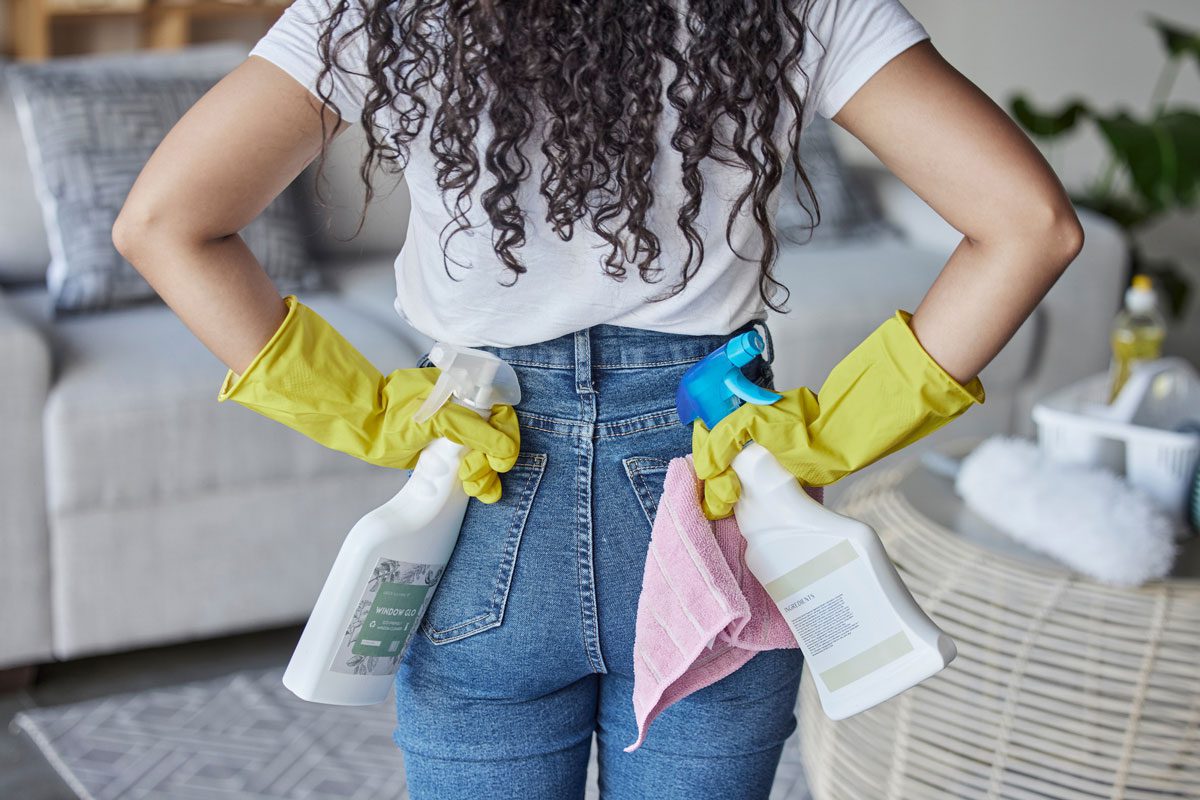Your home is supposed to be where you can relax, de-stress, and get comfy after a tiring day at work. However, it can be hard to relax in your house if you constantly get home to a place filled with mess and clutter. A cluttered home can only add more stress and frustration to the people living there.
Thankfully, dealing with a messy and cluttered house doesn’t have to be a permanent problem. With tips, commitment, and the right attitude, you can attain a clutter-free space where you and your family would love to live.

Are you ready to get started? Here are a few steps to achieving a clean, organized, and clutter-free home:
1. Get Rid Of Your Excess Stuff
It’s hard to keep your home clean when you have a lot of excess stuff everywhere. And even if you did keep some of your extra or duplicate items inside your drawers or cabinets, they’ll eventually pile up in the storage space, leaving no more room for other essential items.
Thus, the first step to achieving a clutter-free home is to get rid of all your excess stuff. You can rent a dumpster to help you with this. Once you’ve secured a dumpster, start by going through each room in your home methodically. Begin with items that are clearly no longer needed or used, such as broken appliances, old clothes that no longer fit or are out of style, and duplicate items.
Thus, the first step to achieving a clutter-free home is to get rid of all your excess stuff. It can be challenging, specifically for people who are sentimental about everything they own. However, keeping all these things around for no reason will only make your home messier and eventually impact everyone’s moods.
To start, get four large boxes and label them with ‘Keep,’ ‘Store,’ ‘Throw,’ and ‘Donate.’ Doing so will make it easier to classify your items and see if they’re still worth keeping. Let other family members do the same when they declutter their individual bedrooms is also recommended.
As you go on, you may realize you’ve kept many things that aren’t any more useful to you. For example, if you find four can openers in your cabinet, you can keep one and put the rest in the donation box. After all, one can opener is enough when you need it in the kitchen.
After you’ve classified all your items, gather all the donation boxes and take them to a local charity or a homeless shelter where people can better use your excess items. You can read more homeless shelter donation tips to ensure you’re donating the right items to them. Ultimately, getting rid of your extra stuff will not only declutter your home but also be a great way to help others in need.
2. Only Buy For Your Needs
One of the primary causes of clutter is impulse buying. Buying things simply because they seem important or exciting can lead to more mess. And once the excitement fades or you realize you won’t need them anymore, you end up piling them on random surfaces, making the space more cluttered.

To avoid impulse buying, list the items you need before you head to the store. That way, you can buy what you need and avoid the ‘just in case’ mindset. For example, if you’re buying mugs, only buy enough for the number of people living in the house. Avoid buying extra stuff just in case you might need it later. Remember, the key to a clutter-free space is to own less. The fewer items you own, the less clutter you’ll have.
3. Give Everything A Place For Storage
One way to maintain a clutter-free home is to give all your things a storage place. Whether it’s your car or door keys, remote controls, or phone chargers, ensure everything has a proper storage place. That way, you and the remaining household members will get used to putting these things back in storage instead of leaving them everywhere around the house. You may also redesign your home to add more ample storage space for your bigger things.
Self-storage can be beneficial in temporary relocations, storing seasonal items, business storage, downsizing, managing life transitions, and storing hobby or collection-related items. It provides a convenient solution for freeing up space in your home or keeping belongings secure when not needed immediately. However, before opting for self-storage, it’s essential to weigh the cost and practicality.
Consider whether the items you plan to store are truly worth the expense and whether you’ll require regular access to them. Additionally, be cautious of self-storage becoming a long-term solution for accumulating clutter instead of addressing it directly.
4. Deal With Your Mails
Paper such as mail, magazines, and newspapers can quickly pile up on your table when not managed effectively. To reduce paper clutter, make sure to deal with them immediately. For example, after getting and reading the newspaper for today, store them away in your drawer or recycle them for other purposes. Or, if you wish to minimize paper waste in the house, you can cancel your daily/weekly subscription to newspapers and magazines and opt for digital copies. The less paper you receive, the less waste and clutter you must manage.
5. Do The Dishes Immediately
It can be stressful to be greeted by a pile of dishes on the sink when you get home from work or wake up every morning. So, keep your kitchen clean and clutter-free by doing the dishes immediately after every meal or at least every after breakfast and dinner. Your kitchen will be tidier, and all your dishes and cutlery will be ready for the next meal when you need them.
Additionally, keep your kitchen organized by using drawer dividers, shelf risers, and storage containers to maximize space and keep everything easily accessible. Get rid of unused or expired items and make it a habit to clean up spills as soon as they occur to prevent clutter from accumulating. By maintaining a clean and organized kitchen, you’ll create a more enjoyable cooking and dining experience while reducing stress and saving time in the long run.
6. Do A Quick Reset Of Your Home Daily
Before you unwind or go to bed in the evening, make it a habit to quickly reset your house. For instance, you can straighten the rugs and cushions in the living room, put everything away or back to their original storage, and wipe all surfaces clean. This way, you’ll wake up every morning with a clean and clutter-free house ready for the day’s action.
Wrapping Up
Achieving a clean and clutter-free space requires commitment and consistency. Simple habits like returning things where they belong can make a massive difference to your home’s cleanliness. Now that you have these steps, it’s your turn to add them to your routine and achieve a healthy and clutter-free lifestyle.


